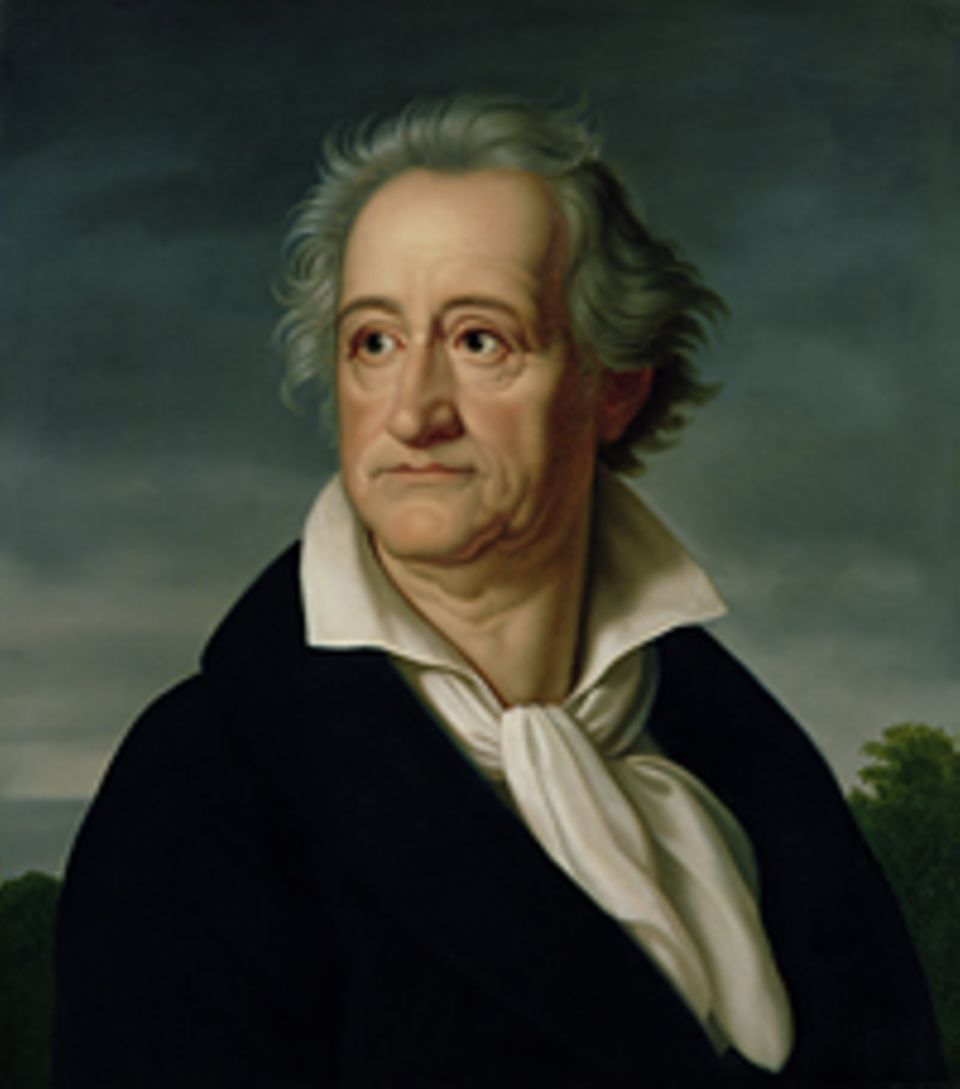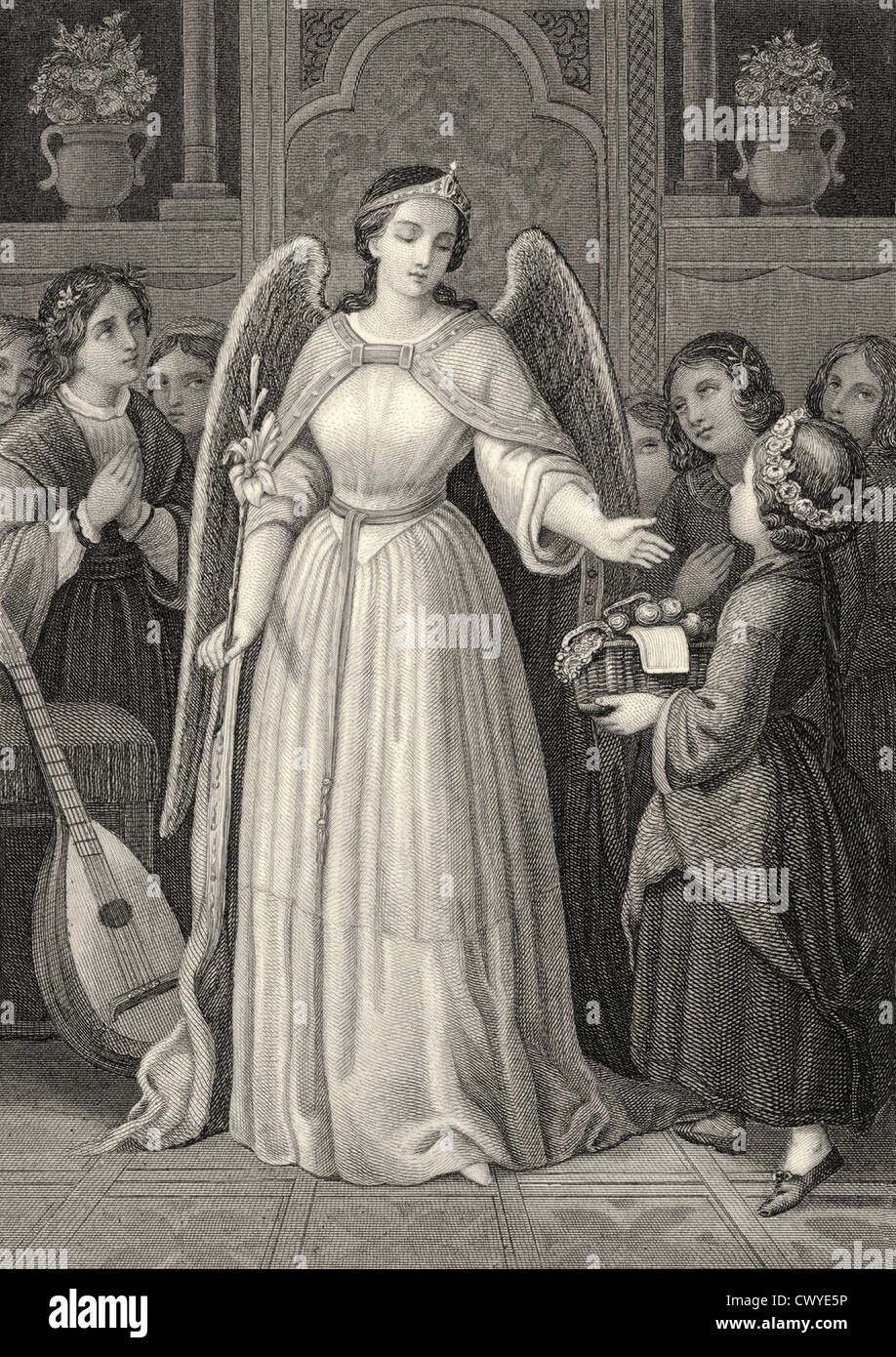Goethe, Johann Wolfgang Von: Mignon
Di: Stella
Johann Wolfgang von Goethe – An Mignon lyrics (German) + English translation: Over vale and torrent far / Rolls along the sun’s bright car. / Ah! he wak
Das Gedicht „Mignon“ von Johann Wolfgang von Goethe, dass im Jahre 1795/96 vollendet wurde, stammt aus der Epoche der Klassik. Dabei handelt es sich um ein Bildungsroman und wurde als der siebte
La Chanson de Mignon, Johann Wolfgang von Goethe

by Johann Wolfgang von Goethe (1749 – 1832), „Mignon“, written 1796, appears in Wilhelm Meisters Lehrjahre, first published 1796 [author’s text checked 1 time against a primary source] | | | Mignon Kennst du das Land, wo die Zitronen blühn, Im dunkeln Laub die Gold-Orangen glühn, Ein sanfter Wind vom blauen Himmel weht, Die Myrte still und hoch der Lorbeer steht – Kennst Johann Wolfgang von Goethe Die Geschichte von Mignons Eltern Erzählung aus Wilhelm Meisters Lehrjahre (1796) »Meinen Vater«, sagte der Marchese, »muß ich, so viel Welt ich
He turned his gaze to the white expanse of the ceiling: Thoughts and voices drift at the edge of consciousness a tangible silence of boredom envelops, bringing soft sweeping swells of
Herz im Herzen Grimmig mir zerrissen ist. Heimlich muß ich immer weinen, Aber freundlich kann ich scheinen Und sogar gesund und rot; Wären tödlich diese Schmerzen Meinem Herzen, Ach,
Sie befinden sich hier: Startseite > Wissensdatenbank > Porträts und Illustrationen literarischer Werke > Johann Wolfgang von Goethe > Mignon-Illustrationen > »Goethe-Motive auf Gedicht als Bild, zum Downloaden und Teilen Kurze Interpretation des Gedichts Das Gedicht „An Mignon“ von Johann Wolfgang von Goethe ist ein ergreifender Ausdruck tiefen Leids und
Kennst du das Land, wo die Zitronen blühn? – Gedicht von Johann Wolfgang von Goethe, 1. Lied der Mignon aus ‚Wilhelm Meisters Lehrjahre‘: ‚Kennst du das Land? wo die Citronen blühn, / Im August von Goethe starb zehn Tage, nachdem er die Kuppel des Petersdoms im Glanz der Morgensonne gesehen hatte, an einem Schlaganfall in Rom. Von dem Schock, der ihn im
Johann Wolfgang von Goethe (1749-1832) Mignon Nur wer die Sehnsucht kennt, Weiß, was ich leide! Allein und abgetrennt Von aller Freude, Seh ich ans Firmament Nach jener Seite. Ach!
Goethe Johann Wolfgang von Mignon
by Johann Wolfgang von Goethe (1749 – 1832), „Mignon“, written 1782, appears in Wilhelm Meisters Lehrjahre, first published 1795 [author’s text checked 2 times against a primary source]
- Johann Wolfgang von Goethe: Die Geschichte von Mignons Eltern
- Goethe Johann Wolfgang von Mignon
- Mignon by Johann Wolfgang von Goethe: poem analysis
- Das Goethezeitportal: Goethe, Johann Wolfgang von
- Mignon by Johann Wolfgang von Goethe
Johann Wolfgang von Goethe << Poème Précédent Poème Suivant >> Poème publié et mis à jour le: 24 June 2019 Wilhelm Meister’s Apprenticeship (German: Wilhelm Meisters Lehrjahre) is the second novel by Johann Wolfgang von Goethe, published in 1795–96.

MIGNON. [This universally known poem is also to be found in Wilhelm Meister.] KNOW’ST thou the land where the fair citron blows, Where the bright orange midst the foliage Johann Wolfgang von Goethe was a German writer and politician. more All Johann Wolfgang von Johann Wolfgang von Goethe poems | Johann Wolfgang von Goethe Books Follow 7 fans Musterklausur II Die Arbeitsblätter zu den „Musterklausuren“ können Sie sich ausdrucken und ausfüllen. Sie unterstützen Sie bei der Erarbeitung von Gedichtinterpretationen. Vergleichende
An Mignon von Johann Wolfgang von Goethe Notizen / Anmerkungen 1 Über Tal und Fluß getragen, 2 ziehet rein der Sonne Wagen. ← The Reckoning The Works of J. W. von Goethe, Volume 9 (1795) by Johann Wolfgang von Goethe Mignon translated by Thomas Carlyle General Confession →
Poetry Atlas – Mignon by Johann Wolfgang von Goethe Read Mignon and thousands of other famous poems about places. KNOW’ST thou the land, there where the citron blows?. Das Gedicht “Mignon” von Johann Wolfgang von Goethe, dass im Jahre 1795/96 vollendet wurde, stammt aus der Epoche der Klassik. Dabei handelt es sich um ein Bildungsroman und wurde Sprecherin: Camilla Elisabeth Bergmann „Mignon“ ist eines der bekanntesten Gedichte von Johann Wolfgang von Goethe. Ursprünglich aus drei Strophen bestehend
With the possible exception of William Shakespeare, no other poet had such a profound influence on song as Johann Wolfgang von Goethe (1749-1832). For Germany’s greatest poet, music
Mignon by Johann Wolfgang von Goethe Do you know the land where the lemon-trees grow, in darkened leaves the gold-oranges glow, a soft wind blows from the pure blue sky, the myrtle Goethe, Johann Wolfgang von (1749-1832) Mignon Kennst du das Land, wo die Citronen blühn, Im dunkeln Laub die Gold-Orangen glühn, Ein sanfter Wind vom blauen Himmel weht, Die Johann Wolfgang von Goethe Mignon Kennst du das Land, wo die Zitronen blühn, Im dunkeln Laub die Goldorangen glühn, Ein sanfter Wind vom blauen Himmel weht, Die Myrte still und
Goethe, Schiller und die Goethezeit auf Google+ Sie befinden sich hier: Startseite > Wissensdatenbank > Projektepool > Goethes Italienische Reise > Italienlyrik der Goethezeit >
by Johann Wolfgang von Goethe (1749 – 1832), „Mignon“, written 1785, appears in Wilhelm Meisters Lehrjahre, first published 1795 [author’s text checked 2 times against a primary source] Text by: Johann Wolfgang von Goethe Text written 1783. First published 1795.
Mignon (Kennst du das Land) German source: Johann Wolfgang von Goethe Kennst du das Land, wo die Zitronen blühn, Im dunkeln Laub die Gold-Orangen glühn, Ein sanfter Wind vom
- Golden Black Panther Wallpapers
- Gleissner-Wohnschau.De Webseitenanalyse
- Go With The Flow — Queens Of The Stone Age
- Goodbye, De Fofftig Penns _ Der platteste Werder-Song aller Zeiten
- Gothamchess: The Man Who Changed Chess Forever
- God Of War Staffel 1 _ God of War Price history · SteamDB
- Golf Courses In Page, Arizona , Lake Powell National Golf Course in Page, Arizona
- Glücksforscher Sagt, In Welchem Alter Man Am Unglücklichsten Ist
- Goodgame Fashion No Tuca Jogos
- Good Co-Op Games For Saturn. _ Sega Saturn RPGs, Ranked Best to Worst
- Gothic Korsetts, Miedergürtel, Korsagen
- Gmina Stare Bogaczowice | System Informacji Przetrzennej
- Goch: Neuer Ort Für Bücherei Und Einen Kindergarten
- Global Semiconductor Industry Worth $616.5 Billion
- Gospel – Gospel Music | Die besten Gospelsänger der USA auf gemeinsamer Tournee!